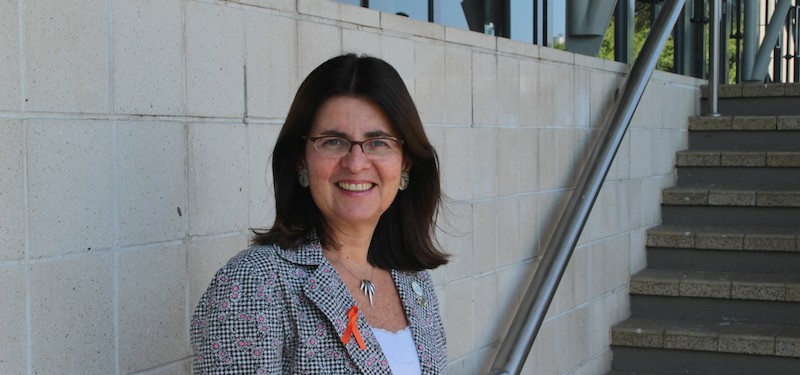RZ: This is a 26 going on 27 year old association that means it’s come a long way but the name is so complicated– FAUBAI– especially outside of Brazil. Officially we are a forum of heads of international affairs in Brazilian universities. However, legally speaking it’s different to be a legalised formal association due to Brazilian legislation but in the general assembly we decided to formally change our name.
We are still FAUBAI because it’s known everywhere but from now the “forum of heads of international offices, etc” has been transformed into The Brazilian Association for International Education. One of the reasons is because its easier to present ourselves in the same way as other associations– IEAA in Australia, EAIE in Europe, NAFSA.
“Most of our system is small private institutions offering undergrad programmes in the countryside of Brazil and they do not do international education”
The PIE: So the Brazilian Association of International Education is a tagline for FAUBAI?
RZ: That’s it. But it’s not just that. We are not just an association of members from the international offices in the Brazilian higher education institutions because our members are not only from universities but all kinds of higher education institutions. Putting this new name is marking a new moment in our field. It means FAUBAI has an important role in developing strategies, plans, priorities and objectives in terms of internationalisation of Brazilian higher education.
The PIE: What are those new strategies?
RZ: Higher education in Brazil is very complex and diverse. We have eight million higher education students in Brazil, we have around 2,400 higher education institutions, public and private, most of them private, and we have less than 200 universities. That means most of our system is small private institutions offering undergrad programmes in the countryside of Brazil and they do not do international education. When we think about internationalisation of Brazilian higher education, we will think about the most important Brazilian universities or even some private institutions but doing internationalisation very well in terms of mobility, joint research, dual degrees– everything in the field.
So the role of FAUBAI is the professionalisation of international education. We provide workshops, training programmes, sharing of best practices to our members because we have different levels of internationalisation in Brazil and different kinds of institutions.
We also do a lot of advocacy in and outside of Brazil especially with the Brazilian government and all the stakeholders involved. FAUBAI has had a very important role also in promoting Brazilian higher education abroad. So training, advocacy and promotion of Brazil’s higher education abroad are the three most important roles of FAUBAI.
The PIE: How many members do you have?
RZ: Around 250 higher education institutions.
The PIE: So you represent around a tenth of the sector?
It’s hard to break it down like that because most of Brazilian higher education institutions are very very small and will never do international activities because they only offer three or four undergrad degrees for the community in that part of the country. It’s not just 10% because regarding the most important universities doing international activities we represent 90%.
The PIE: Is there one element of internationalisation that FAUBAI is focused on promoting?
“It’s important to not just have international students taking these courses in English”
RZ: I think that like everywhere student mobility is a very important part of our activities because Brazil has been doing a great job improving the internationalisation process in this part of the world. But, compared to other countries we’re just beginning to do more organised and strategic activities.
Student mobility remains a focus for Brazilian institutions but we need to focus on attracting international students. We have to do this and when universities achieve sending just 10% of their students abroad they will be very, very happy. But to have 90% staying at home, we have to provide international activities at home through the curriculum. Sometimes it’s not so easy for Brazilian and Latin American universities but we have to start by offering courses or degrees in English.
The PIE: And how have universities reacted to that need?
RZ: We’re just starting but it’s important that the Brazilian higher education institutions and most importantly the Brazilian government have realised that we must do this. We cannot be global in this part of the world without offering courses or degrees in English. And there are a few institutions, no more than five, with very successful full degrees in English.
And we have many more courses in English which means Brazilian universities are working to be able to offer six or eight or more courses in English for students studying for a semester or a year. And what’s different in Brazil is those courses are also offered to domestic students. It’s important to not just have international students taking these courses in English. I think in the next years we’ll see more and more of this.
The PIE: Where do the international students in Brazil come from?
Related articles




7 Responses to Renée Zicman, Executive Director, FAUBAI